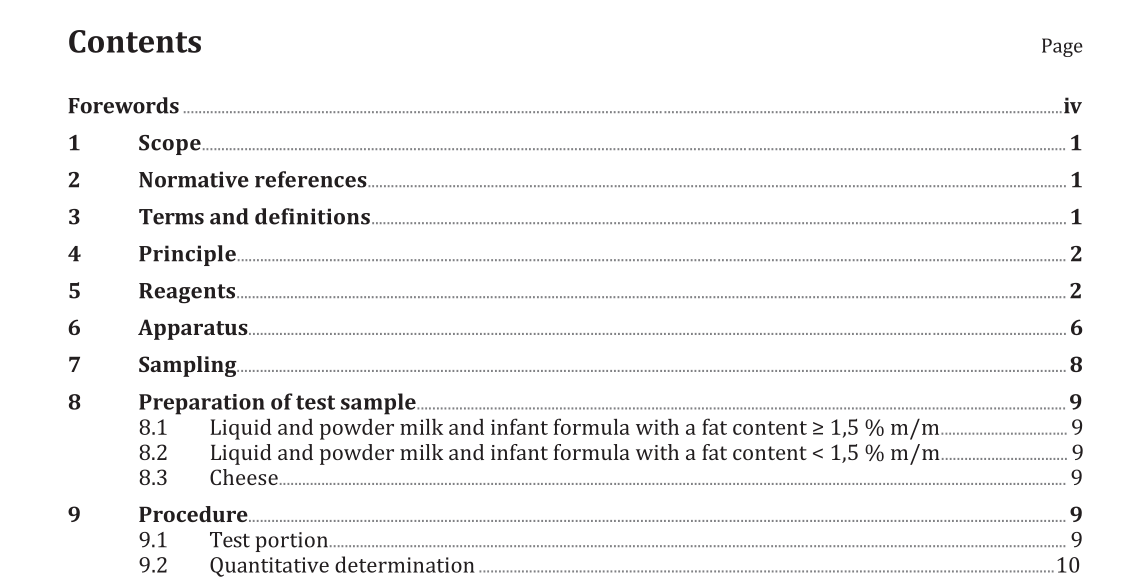BS ISO 16958:2015 pdf download.Milk, milk products, infant formula and adult nutritionals — Determination of fatty acids composition — Capillary gas chromatographic method
1 Scope
This International Standard specifies a method for the quantification of individual and/or all fatty acids in the profile of milk, milk products, infant formula and adult nutritional formula, containing milk fat and/or vegetable oils, supplemented or not supplemented with oils rich in long chain polyunsaturated fatty acids (LC-PUFA). This also includes groups of fatty acids often labelled [i.e. trans fatty acids (TFA), saturated fatty acids (SFA), monounsaturated fatty acids (MUFA), polyunsaturated fatty acids (PUFA), omega-3, omega-6 and omega-9 fatty acids] and/or individual fatty acids [i.e. linoleic acid (LA), α-linolenic acid (ALA), arachidonic acid (ARA), eicosapentaenoic acid (EPA) and docosahexaenoic acid (DHA)]. The determination is performed by direct transesterification in food matrices, without prior fat extraction, and consequently it is applicable to liquid samples or reconstituted powder samples with water having total fat ≥ 1,5 % m/m. The fat extracted from products containing less than 1,5 % m/m fat can be analysed with the same method after a preliminary fat extraction using methods referenced in Clause 2. Dairy products, like soft or hard cheeses with acidity level ≤ 1 mmol/100 g of fat, can be analysed after a preliminary fat extraction using methods referenced in Clause 2. For products supplemented or enriched with PUFA with fish oil or algae origins, the evaporation of solvents should be performed at the lowest possible temperature (e.g. max. 40 °C) to recover these sensitive fatty acids.
4 Principle
Addition of the internal standard solution to the sample, preparation of fatty acid methyl esters (FAMEs) by direct transesterification with methanolic sodium methoxide for liquid samples; dissolution (i.e. reconstitution) in water for powder sample and direct transesterification with methanolic sodium methoxide. The same transesterification procedure is applied to fat extracted from various foods (e.g. low fat products, cheeses). Separation of FAMEs using capillary gas-liquid chromatography. Identification of FAMEs by comparison with the retention time of pure standards and quantification as fatty acids by reference to an internal standard (C11:0 FAME) and instrument response factors. Verification of the transesterification performance using a second internal standard (C13:0 TAG).
5.17 Qualitative cis and trans isomers standard mixture solution
For the retention time (RT) identification of cis and trans isomers (i.e. C18:1, C18:2, C18:3 and CLA), prepare a qualitative standard solution with the standards listed in 5.13 to 5.16. All standards that are commercially available could be used. Into a 50 ml volumetric flask, add each standard isomer solution in equal proportion. Dissolve and make up to the mark with hexane. Dilute in accordance with the type of injector used.
BS ISO 16958:2015 pdf download
